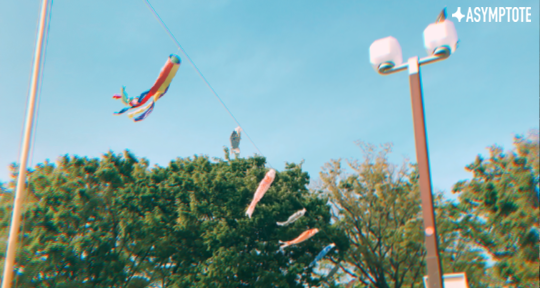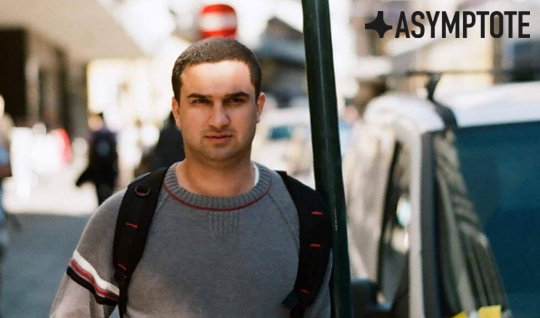According to Sylvia Plath, August is an “odd and uneven time” so it’s all the more fitting that we’ve chosen Juan José Millás’ spectacularly surreal and cerebral novel, From the Shadows, as our Book Club selection this month. Millás is an author known for bringing existential thought into dreamlike spaces, and in this exemplifying work, the narrative carves a labyrinthine path through a mind withstanding both physical and mental confinements, and the language, rife with darkness and comedy, traces the fine walls of worlds both real and imagined with Kafkaesque soliloquy.
The Asymptote Book Club strives to bring the best translated fiction every month to readers in the US, the UK, and the EU. From as low as USD15 a book, sign up to receive next month’s book on our website; once you’re a member, you can join the online discussion on our Facebook page.
From the Shadows by Juan José Millás, translated from the Spanish by Thomas Bunstead and Daniel Hahn, Bellevue Literary Press, 2019
“Every love story is a ghost story”: David Foster Wallace’s epigraph encapsulates the phantasmagoric search for love and acceptance in Juan José Millás’ From the Shadows, the author’s much-anticipated English debut. Translated from the Spanish by Thomas Bunstead and Daniel Hahn, From the Shadows follows the story of Damián Lobo, an unemployed maintenance worker, who, in a strange turn of events, hides himself inside an old wardrobe and gets transported to the home of a young family. Instead of escaping from his physical confinement, Damián inhabits the space behind the wardrobe and becomes the “Ghost Butler,” a spectral being who tends to chores around the house in the daytime when the family is out and slips back to his hiding place in the master’s bedroom at night.




